Customer Satisfaction and Loyalty: Research Analysis for RES500, 2019
VerifiedAdded on 2022/10/06
|5
|813
|21
Homework Assignment
AI Summary
This assignment analyzes a research article examining the impact of customer satisfaction on customer loyalty within the banking industry in Botswana. The study explores key concepts such as customer loyalty, satisfaction, and moderating factors like demographics and income. It applies the Expectation-confirmation theory and the Theory of Planned Behavior to explain the relationship between customer satisfaction and repurchase intentions. The research tests hypotheses relating customer satisfaction and loyalty, including the influence of demographic variables. The methodology involves a survey of 44 respondents, emphasizing ethical considerations such as informed consent, voluntary participation, anonymity, and data security. The assignment also addresses ethical issues in research, the role of research ethics and ethical codes of conduct.
1 out of 5
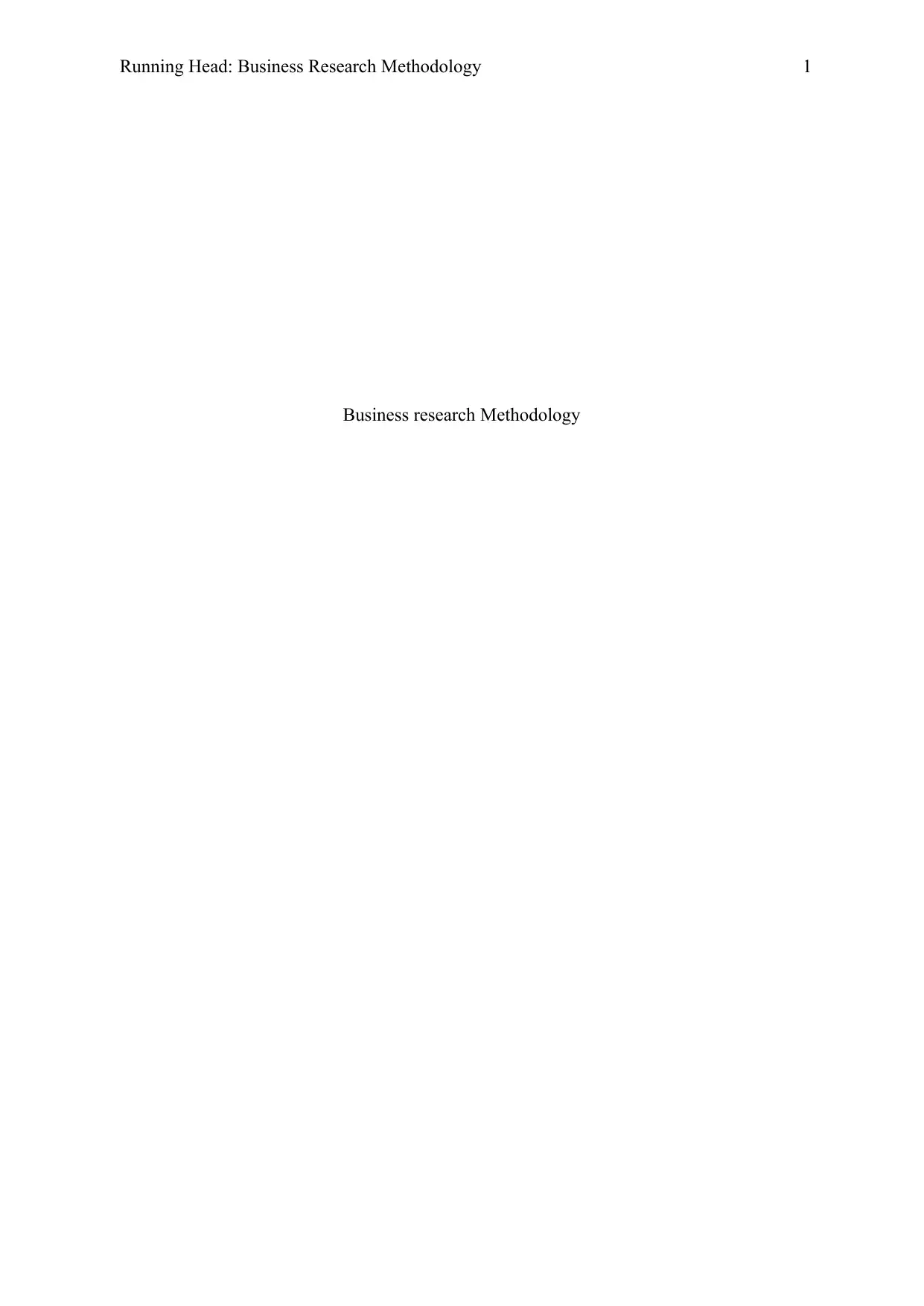
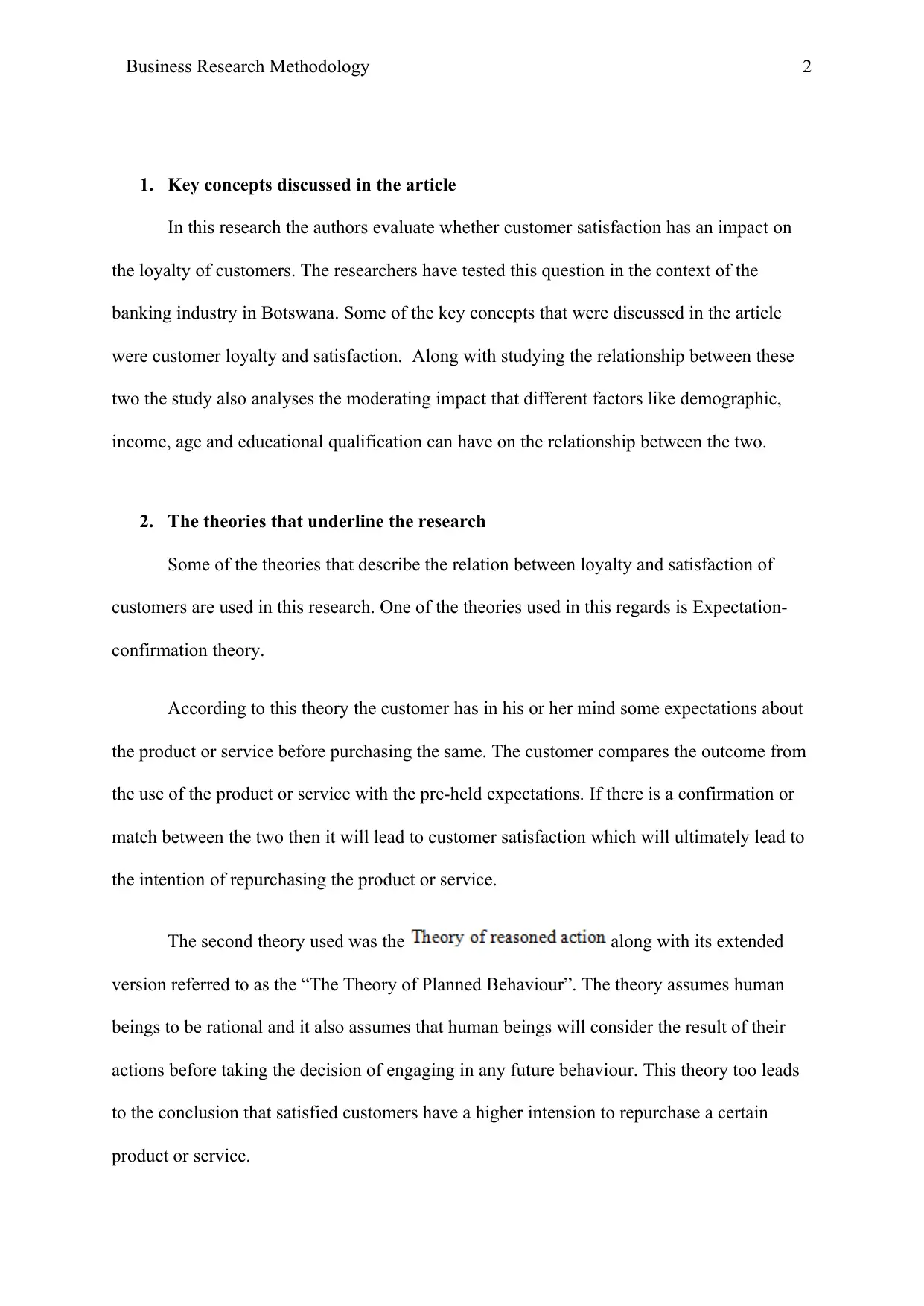
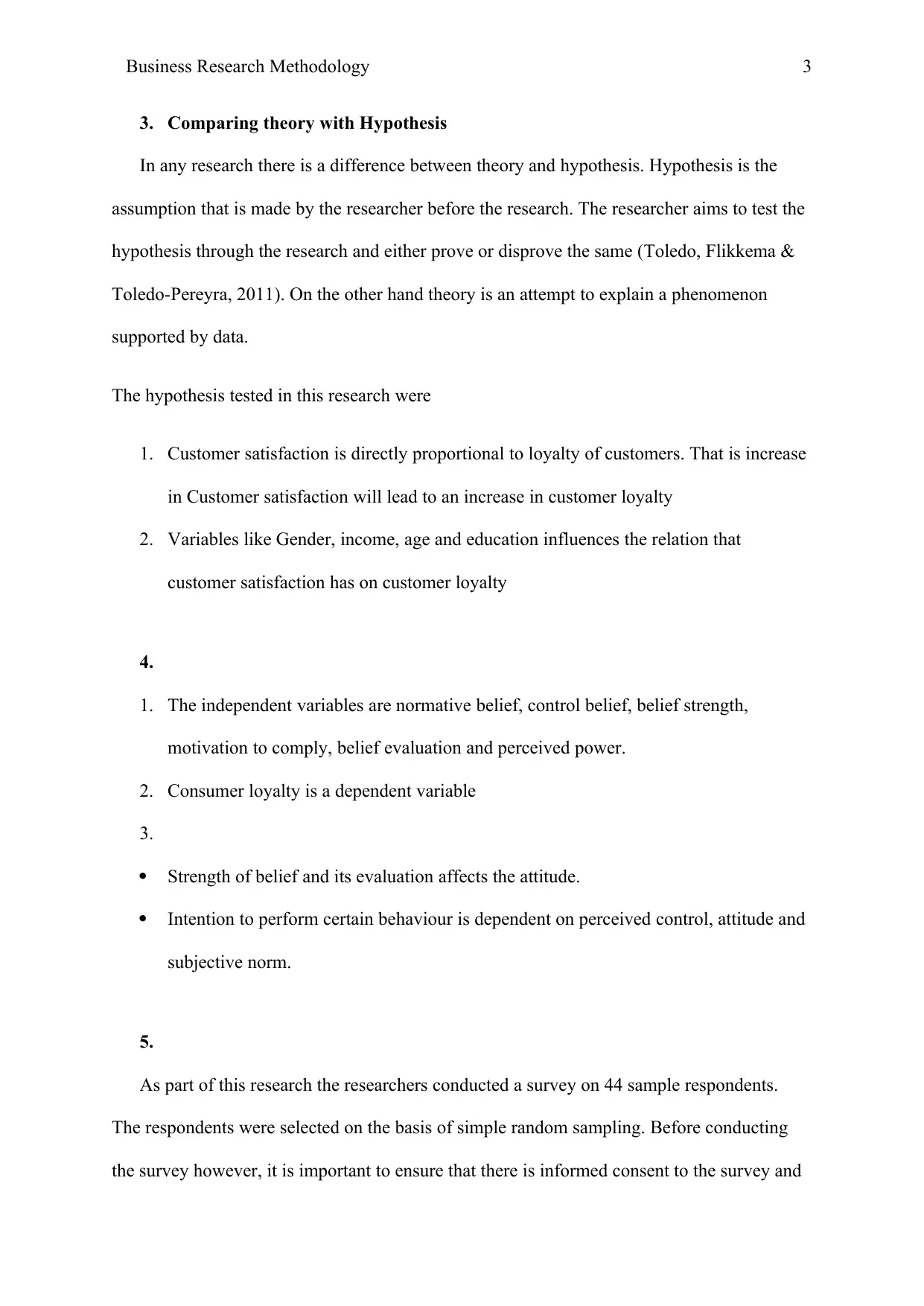

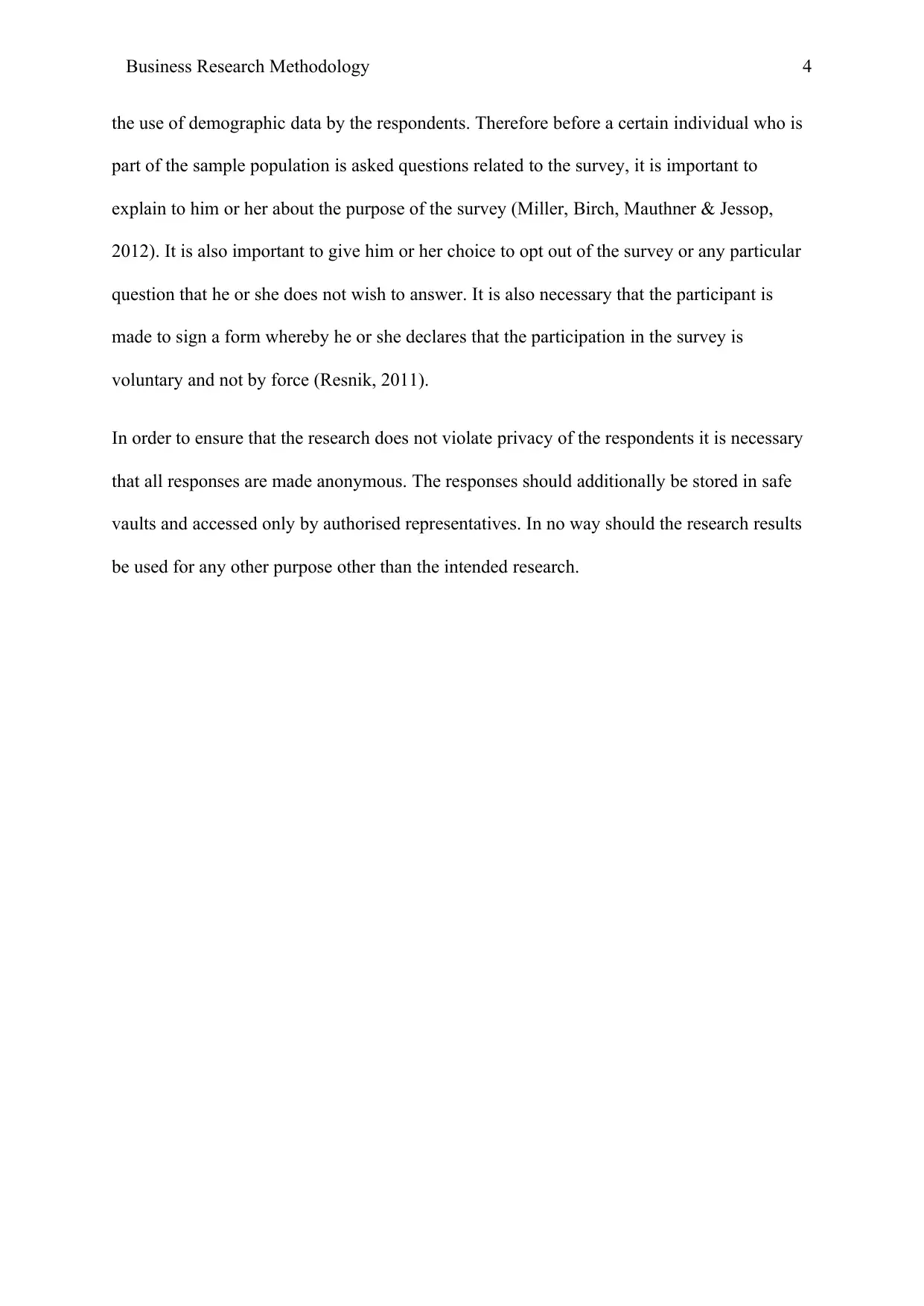
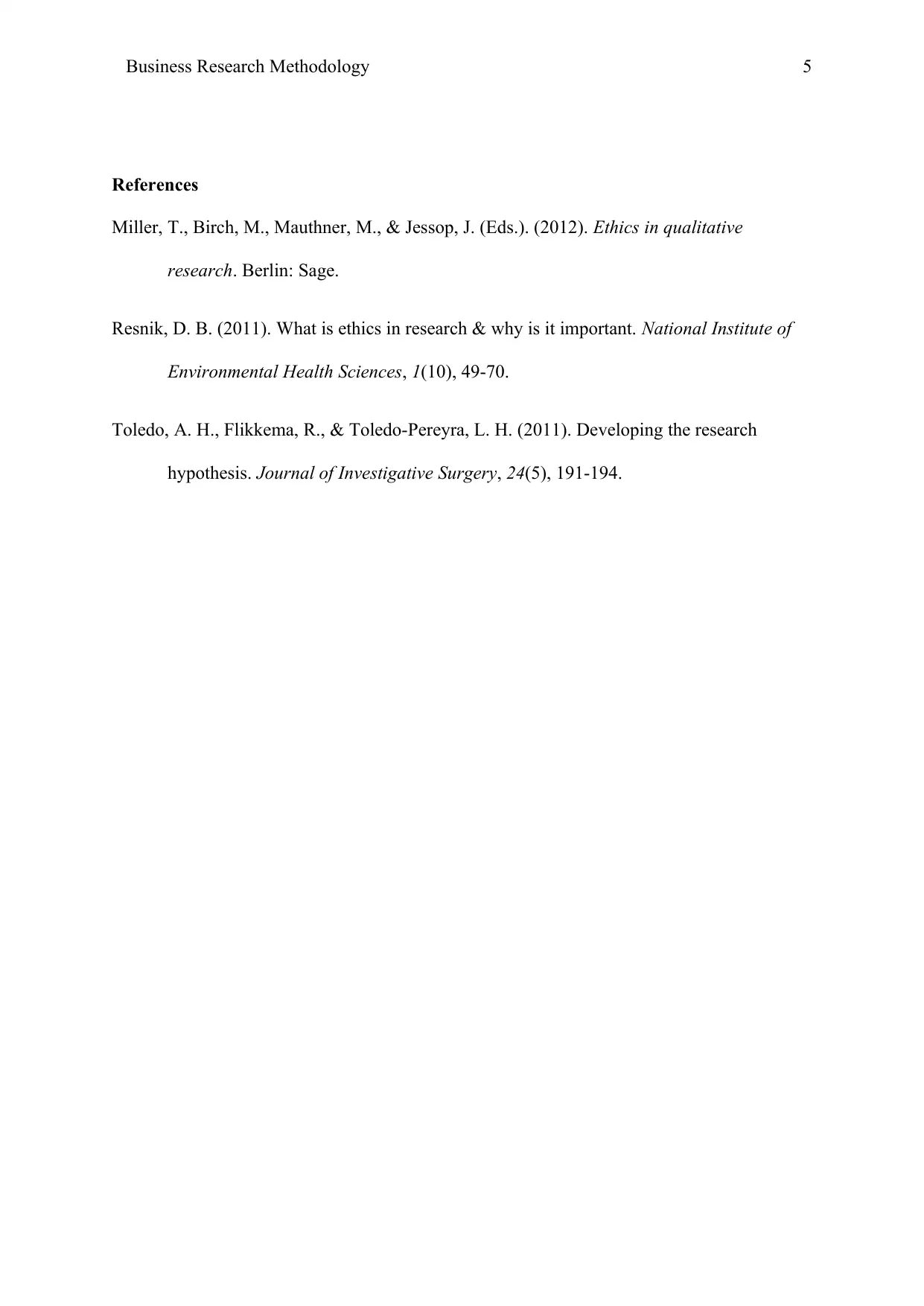






![[object Object]](/_next/static/media/star-bottom.7253800d.svg)